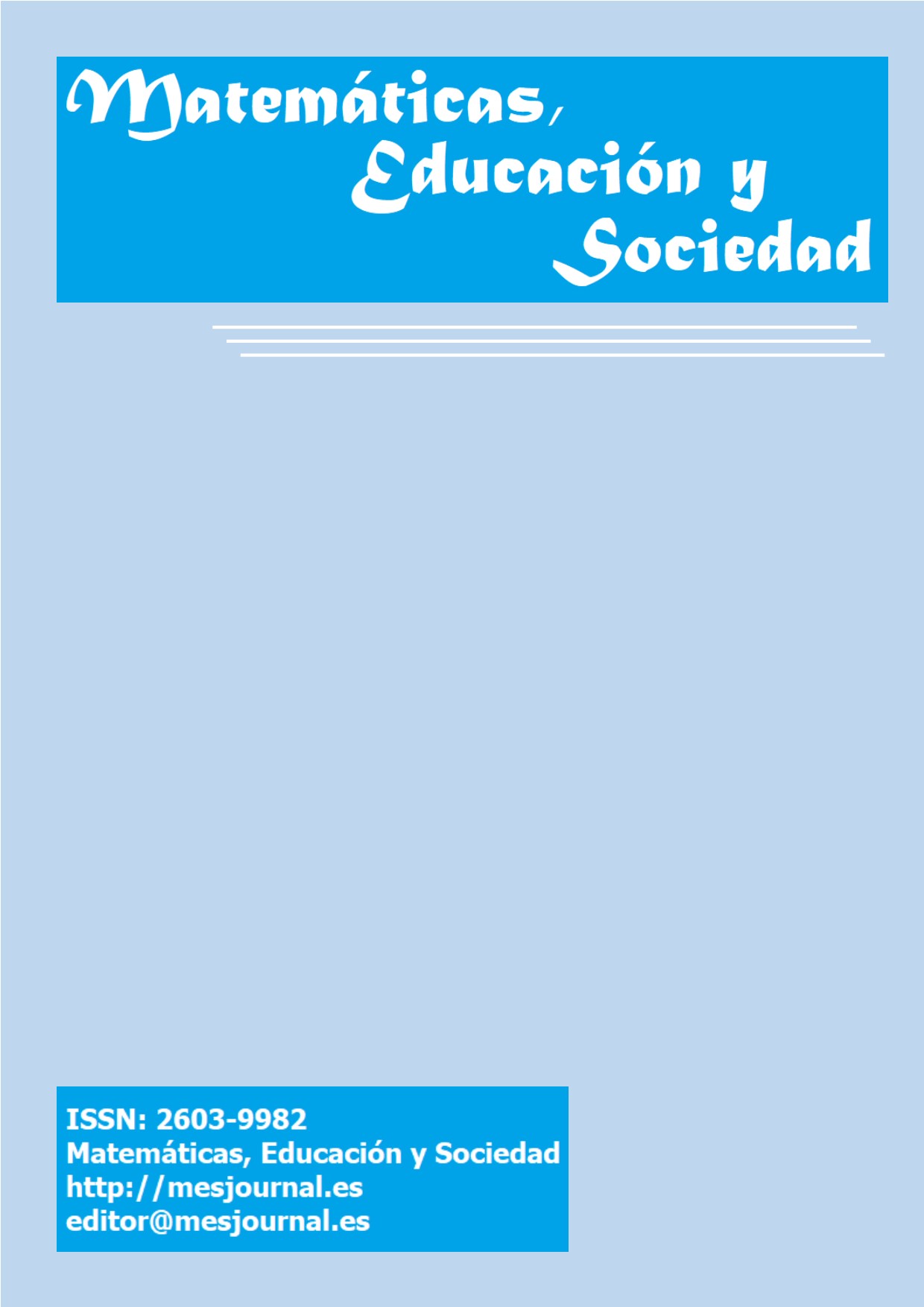A model to characterize the justification of rules and algorithms of the numerical-algebraic domain in textbooks
Main Article Content
Abstract
A descriptive-interpretative study is presented centered on the analysis of textbooks of greater use in Chile in the period 2001 - 2018, in the levels of school education, that seeks to identify and characterize the justification of rules and algorithms in the numerical - algebraic scope. For this purpose, an a priori model was developed based on three dimensions: the mode of representation (Enactive - Iconic - Symbolic) that is used, the quantity of these and their possibility of generalizing. The application of these dimensions to textbooks led to the adjustment of the model, which made it possible to find new types of justification and study their trends, which constitutes a contribution in the selection and analysis processes of classroom activities.
Downloads
Article Details
This work is licensed under a Creative Common License (CC BY 3.0 ES)
References
Araneda, J. , Ovalle, X. (2003). Matemática 5º básico. Santiago de Chile: McGraw Hill.
Aróstegui (2001). La investigación histórica: Teoría y método. Barcelona: Crítica.
Bórquez, E., Darrigrandi, F. y Zañartu, M. (2010). Matemática 8º Educación Básica. Santiago de Chile: Santillana.
Bouvier, A. y George, M. (2016). Diccionario de Matemáticas. Madrid: AKAL.
Braga, G. , Belver, J.L. (2016). El análisis de libros de texto: una estrategia metodológica en la formación de los profesionales de la educación. Revista Complutense de Educación. 27, 199-218.
Bruner, J. S. (1966). Toward a theory of instruction. Cambridge: Harvard University Press.
Bruner, J. S.(1980). Investigaciones sobre el desarrollo cognitivo. Madrid: Pablo del Río.
Bruner, J. S., Goodnaw, J. J. y Austin, G. A. (1978). El proceso mental en el aprendizaje. Madrid: Morata.
Bruner, J. S. (1963). El proceso de la educación. México: UTEHA
Cárcamo, M. , Díaz – Levicoy, D. y Ferrada, C. (2018). Los ejemplos en la enseñanza de las ecuaciones en libros de texto de educación primaria. REMAT, 4, 38-54
Catalán, D., Pérez, B., Prieto, C. y Rupin, P. (2015). Matemática 8º Básico. Santiago de Chile: SM.
Cofré, A. y Russel, A. (2001). Matemática 7º año básico, Santiago de Chile: McGraw Hill.
Escolano, A. (1997). Historia ilustrada del libro escolar en España. Del Antiguo Régimen a la Segunda República. Madrid: Fundación Germán Sánchez Ruipérez.
Frías, M. (2004). Matemática 6ºbásico. Santiago de Chile: Zig-Zag.
Gascón, J.(2001). Incidencia del modelo epistemológico de las matemáticas sobre las prácticas docentes. Revista Latinoamericana de Investigación en Matemática Educativa, 6, 129-159.
Gómez, C.J, Cózar. R. y Miralles, P. (2014): La enseñanza de la historia y el análisis de libros de texto. Construcción de identidades y desarrollo de competencias, en ENSAYOS, Revista de la Facultad de Educación de Albacete, 29, 11-25.
Kieran, C., Pang, J., Schifter, D., y Ng, S. F. (2016). Early algebra: Research into its nature, its learning, its teaching. Cham: Springer.
Martínez, M. y Sandoval, M. (2006). Educación Matemática 8º Ed. Básica. Proyecto Ecosfera. Santiago de Chile: SM.
Muñoz, C. y Barriga, P. (2012). Matemática 7º básico. Santiago de Chile. Pearson Educación.
Martínez, J. (2008). Los libros de texto como práctica discursiva. Revista de la asociación de sociología de la educación (RASE), 1, 62-73.
MINEDUC. (2016). Matemática Programa de estudio primero medio. Unidad de Currículum y Evaluación. Santiago de Chile: Ministerio de Educación
Puelles, M. (2000). Los manuales escolares: un nuevo campo de conocimiento. Historia de la Educación. Revista Interuniversitaria, 19, 5-12.
Real Academia Española. (2001). Diccionario de la lengua española (22.aed.). Madrid, España.
Resnick y Ford (1990). La enseñanza de la matemática y sus fundamentos psicológicos. Barcelona: Paidós.
Ruiz, J.L. (1996). Metodología de la investigación cualitativa. Bilbao: Universidad de Deusto.
Suárez, M. (2019). Libro de texto, práctica educativa y competencia comunicativa. Polyphonía, 3, 27-45.
Torres, J. (1994). Globalización e interdisciplinariedad: el curriculum integrado. Madrid: Morata.
Warren, E., Miller, J. y Cooper, T. J. (2013). Exploring young students’functional thinking. PNA, 7, 75-84.

